Travel planning!
Almost 67% of vacationers agree that they have been stressed from information overload when travel planning. The result? More than a third of them rather cancel their trips all together due to stress of travel planning!
Travelling has become such an important part of our life, that according to a study for 22% of Americans it is more important to save money to travel than to buy a house. And they are not alone. It seems like young people around the world are changing the Dream – from the materialistic world to experience the world.
Mindblowing facts about travel planning:
- 89% of Americans are stressed out over planning family vacations
- 61% of travellers are worried about their travel budget and spending too much money
- 50% of stress is generated by deciding on a location
- Information overload left one in five of travellers overwhelmed, confused and anxious about what they should and should not book
- One in 11 Americans feels that planning a vacation is actually a more stressful endeavor than planning a wedding
The result?
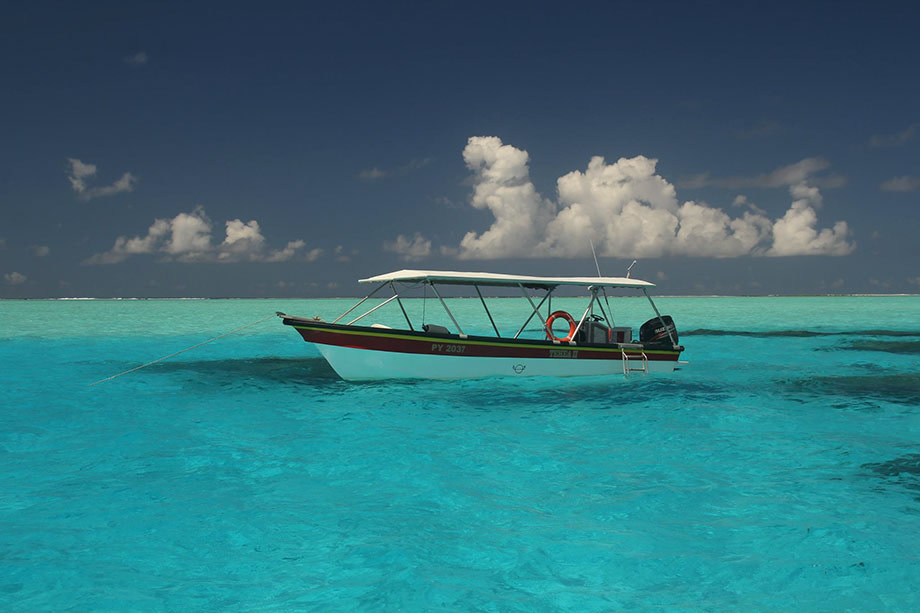
More than a third of vacationers rather delayed or cancelled their trip due to stress of travel planning!
But why is something that almost everyone loves to do causing so much stress?
The study conducted by travel search website liligo.com might know the answer!
To maximize the paid time off people tend to try to plan THE MOST AMAZING, THE PERFECT, THE BEST SOCIAL MEDIA holidays for that limited time off. That brings a lot of stress upon everyone.
Despite all that, the number of travellers that plan their holidays rises every year. Just between 2013 and 2015 the percentage of people who travel on their own grew from 15% to 24%.
What comes to your mind when you hear travel planning?
- How to immediately improve your travel planning skills?
- Why should you become your own travel planner?
- 14 Tips – Travel planning after coronavirus
Is it one of the best part of the whole travelling experience or is it an overwhelming, anxious and confusing barrier, that is hard to cross?
We have been on both sides of that barricade. When we first started to think about travel planning, we were excited and ready to dive in.
But after several hours of researching, we were more lost than when we had started. Anyone else, huh?
As one study shows, we are not alone. Consumers are spending more time visiting websites to plan their getaways. People visit on average 38 websites, before booking. That is an astonishing number. The study also shows that people start with travel planning a full 45 days prior to the actual booking date.
Travellers from Britain spend an average of 30 hours preparing for a holiday abroad. That is equivalent of four working days. The research is spread out over five weeks, more than double the length of the average summer holiday.
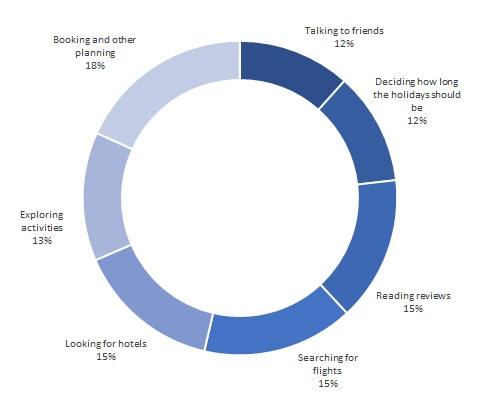
Travel planning 101!
It seems like in general, people love to travel, but most of them hate travel planning. To change it, we use a travel planning system that we like to call RTPS!
And what is RTPS? Reverse travel planning strategy!
The travel planning system that will help you to decide where to go in a matter of minutes! The basis of our travel planning system is not to start with pre-selected destination and twist everything around it. You start with a blank page, or a map, and work from there.
If you don´t need helping to choose the perfect travel destination skip directly to a section Destination! We share with you some major tips on how to plan unforgettable holidays!
Plus a bonus tip at the end, that will change your travel planning forever!
Plus, not only we are going to share with you the most useful tips about travel planning, but we also created a free travel library to help you with the whole travel planning process! Get access here, what are you waiting for? It is free 😊
And don´t forget to visit our Travel resource page if you need a little bit of help with the travel planning.
Table of contents
- How to get rid of stress when travel planning?
- What is the most common problem in travel planning?
- Reverse travel Planning strategy
- How much time do you have?
- What time of the years are you planning to travel?
- Are you travelling alone?
- What type of holidays are you planning?
- What is your budget?
- Choose a destination
- Pre-planning stage
- How to make your trip more interesting?
- Tricks to find all the best places to visit when travelling
- Transportation
- Accommodation
- How to travel around?
- The perfect travel itinerary
- Other arrangements
- Bonus tip
How to get rid of stress when travel planning?
We have planned numerous trips throughout the years, from short weekend getaways to long-term trips. But every time we got caught up in something called decision paralysis.
Decision paralysis occurs when we have to select from many options that are either difficult to compare, or there are simply so many possibilities. The more options we have, the harder it becomes to choose one.
In the beginning, all those possibilities that come with the internet feel exciting. Internet is the greatest resource of information in the world. However, there is a fine line between a lot and too much. After a while, we started to feel anxious. So much information is overwhelming. We slightly realized that we would need hours or days just to cut through the noise of all the resources.
Which resource is legit? What resource to use? How to combine them to strike the best deals? What to plan first?
Sounds familiar? It sure does to us!
According to one study, more than 70% of travellers can´t decide where to travel. Which generates stress.
Then I remember what my grandmother used to say: “Practice makes perfection!”
We, humans, are usually scared of things that we are not used to doing very often. If we are not used to doing something often, we tend to get lost and confused.
As much as we always loved travel planning, it always took us several days and maybe weeks to plan our trips.
The ultimate question always arose:
How to be more organized to plan holidays and trips efficiently?
We decided to practice. To be more efficient, we practised the travel planning process all over again. We started to focus on getting the whole travel planning process into a working system. A system that is repeatable and teachable. So travel planning doesn´t feel overwhelming again.
Today we use our 14 steps travel planning system to plan all our trips.
At the end of this post, you will get familiar with our 14 easy step system that you can follow to plan your next trip. You can follow all the steps, you can skip some or you just can get inspiration from them.
One more thing! We love to be organized. Overall, that basis of travel planning is to have a system! People that love chaos, disorganization and unpredictability usually do not plan their trips.
So, get ready to be organized 😊
But before we get started…
What is the most common problem in travel planning?
There are two common problems in travel planning that cause stress. One, travellers can´t decide where to travel. Second, travellers choose a destination without much information and regret it afterwards.
Many of the people start to plan a trip based on a pre-selected destination. They choose a destination, look for flights, and twist everything else around it. Or they see a hot deal, purchase it and then twist everything around it!
But without previous thorough research, planning a trip that way can cause some unexpected problems.
What if you book an amazing flight deal to a destination, just to realize later that you do not have enough time to explore it? That you chose the wrong season for visiting? That activities you would like to experience are way above your budget? You will probably get frustrated and that is not something that should happen while planning your time off. It also adds a lot of stress to you, if you realize that you need to save $2 000 for your trip in a month while earning just $1 500.
The thing is, most of the travel planning advice starts from: choose a destination and go from there. But it has never worked for us. Every time I think about travelling, millions of ideas come to mind. It is almost exhausting because there are so many places to visit and so many amazing places to see.
You have read it a thousand times over, I bet. Choose a destination, research transportation and accommodation, do some pre-planning research and create an itinerary. That is it! Easy peasy….
What is so hard about it?
Well, if it was THAT easy, there would not be the whole research about the stress involved in travel planning, huh?
To get rid of stress and overwhelm while planning our trips, we use a 12 step travel planning system we like to call RTPS!
So get ready to dive into our step-by-step most detailed travel planning guide ever shared on internet!
Kidding, but it is definitely detailed 😊
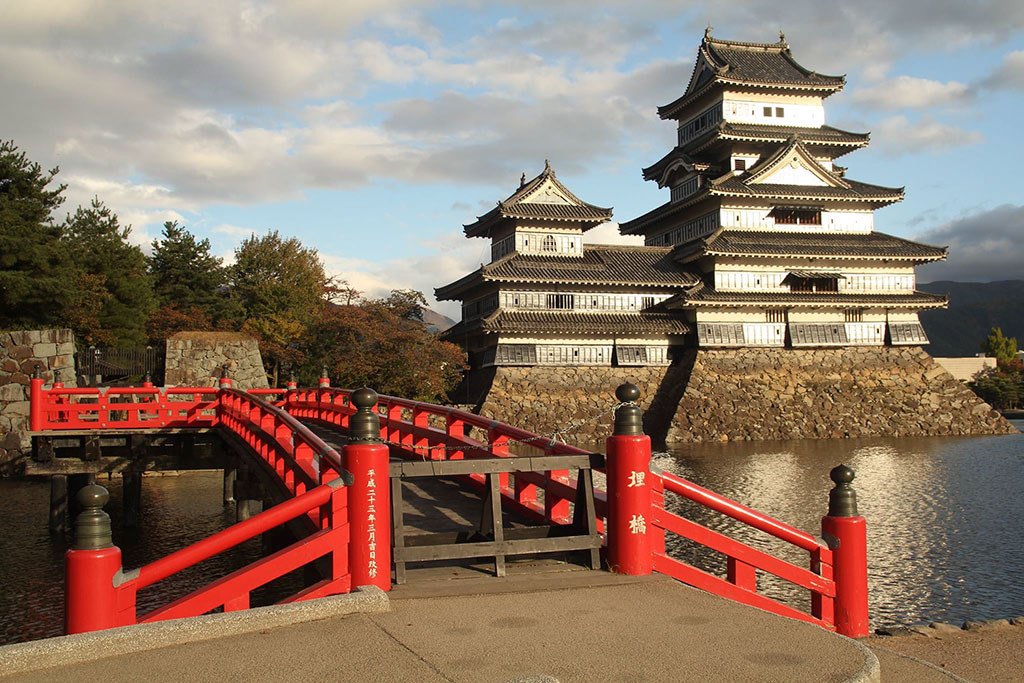
REVERSE TRAVEL PLANNING STRATEGY
1. How much time do you have?
Travel planning is much more enjoyable thing to do when you start with the basics.
The most basic question is: How long do you want to travel for? How much time do you have?
Time determines every aspect of your travel itinerary.
Are you planning to do a short weekend getaway? Do you plan a trip that takes a few months? How much time can you feasibly take off work?
The length of your trip also influences your budget. Time determines how much money you will need, how far you can travel and what activities you can do.
You can’t figure out how much money you need to save if you haven’t decided on how long you’ll be at your destination.
Some people get too excited and overestimate the time they have. If you plan too much for yourself, you will end up too tired. If you only have one or two weeks, you don’t want to waste too much of that time travelling from place to place all the time. Therefore plan a trip in a manner so you do not get too tired, stressed or bored.
So start easy with a step one and decide what length your trip is going to be?
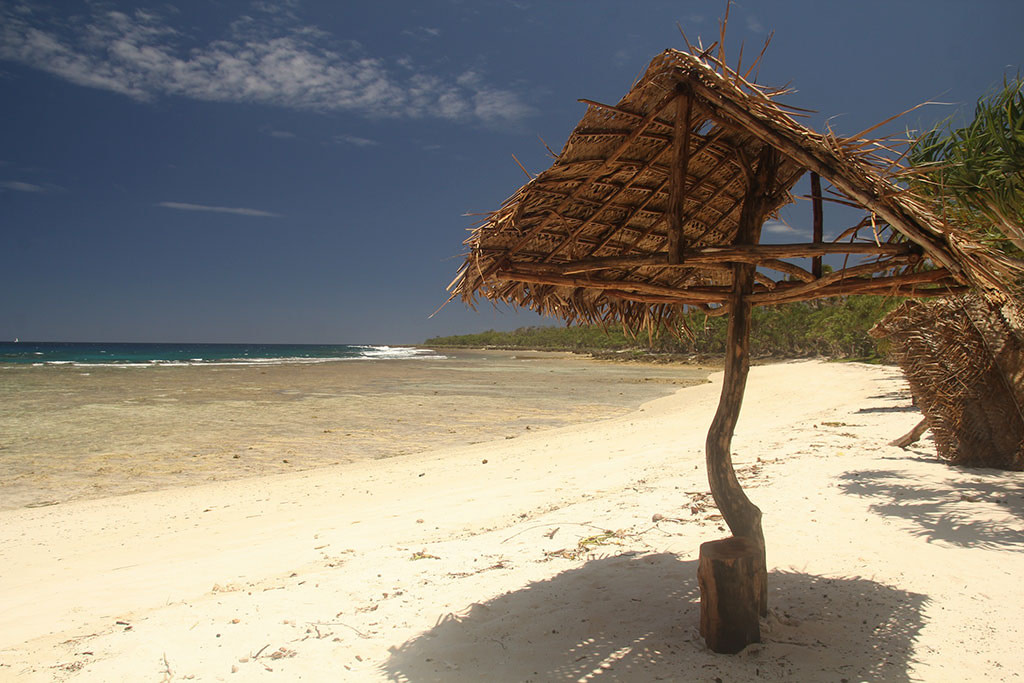
2. What time of the year are you planning to travel?
The second most important question to ask is: What time of the year are you planning to travel?
You can be the best travel planner in the world, but you can´t control weather seasons. Most of the destinations around the world have distinctive seasons, from dry and wet seasons to summers and winters. Some seasons are just better and more comfortable for travelling. In general, the high seasons are more comfortable for travelling, but more crowded. Shoulder seasons are characterized by fewer crowds, but more unpredictable weather.
Some people get caught up in last-minute travel “deals” and amazingly cheap flights. Just to find out after the purchase that they chose a wrong season for travelling.
It is nice that you saved enough money to go to the Maldives, but if you chose the wrong season, you might end up sitting in an overwater bungalow waiting for the rain to stop pouring down.
I don´t know about you, but bad weather can really stress people out.
We almost never fell for the super hot travel deals because most often they come in the wrong season! That is why they are so cheap, anyway.
What is the point of travelling to Iceland for hiking on a super cheap deal, if you spend 6 days of hiking in the rain? Was it a well-planned trip? Was it worth it? Probably not so much…

3. Are you travelling alone?
When you plan a trip, your destination choices, as well as time, can be affected by your travelling companions.
Are you planning to travel solo, as a couple, or with a group of friends?
Will you be the only one who plans a trip? Who will be doing all the decisions?
Travelling in a group brings a lot of challenges.
- 17% of travelers reported that they felt frustrated by their travel companion‘s focus on social media
- 48% of vacationers have felt stressed about keeping everyone happy and entertained while planning a vacation
- A quarter of vacationers say they’ve broken up with a significant other after a stressful vacation and over 1 in 3 travelers questioned their choice of friends after taking a vacation
It is always wise to sit down with your travel companions and discuss all the ideas and shared interests.
You don´t want to plan the whole trip, spend weeks making itineraries, just to find out that your travel companions have different opinions.
The best trips are those where each member of the group has a chance to do what they love. Therefore, don’t leave it to one person to make all the decisions. You do not want to be stuck on your holidays with people that feel uncomfortable and complain all the time.
4. What typu of holidays are you planning?
What type of holidays are you planning? Are you in a mood for a hiking trip? Adventure backpacking trip? Or a luxurious 5* hotel beach vacation?
Your travel style determines where you can go with your budget and time. Do you want to travel on a shoestring budget or do you want to treat yourself and enjoy a little bit of luxury?
Are you the type of person who likes to sit by the pool all day with a book? Or would this bore you to death? By answering these types of questions you can narrow down your list of where you want to go for your trip.
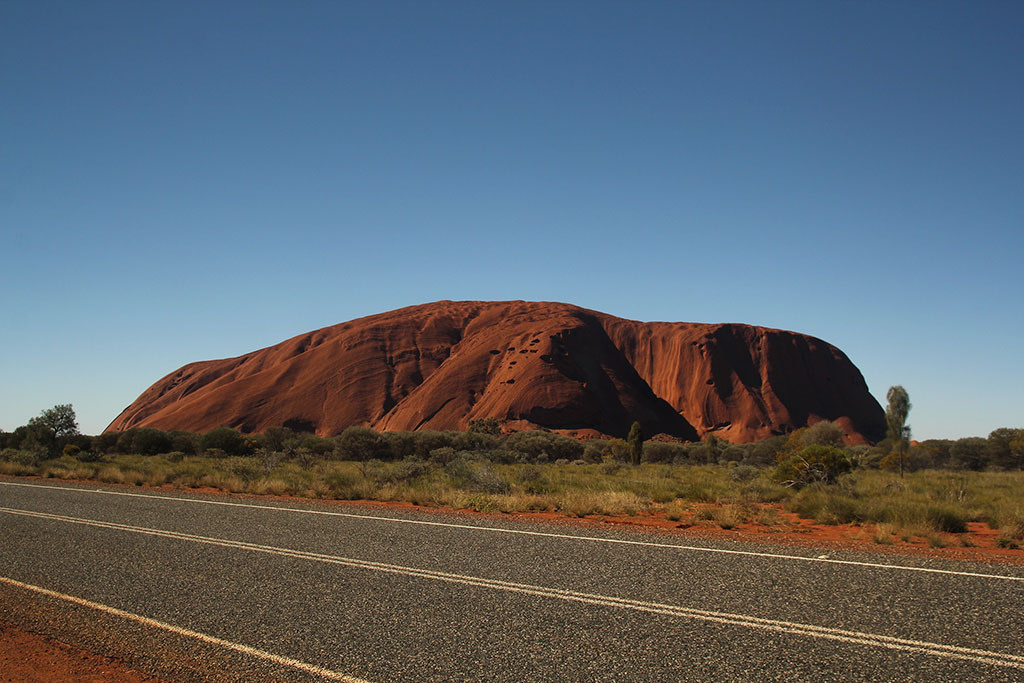
5. What is your budget?
By now you have decided that you are going for two weeks holidays. You are going to travel there in summer next year. And you would love to experience an adventure like hiking and camping.
Now what?
Before choosing your travel destination, you should think about your budget.
How much money can you spend on your holidays?
The best strategy to quickly estimate your budget is to look at your savings history.
There are three important questions to ask:
- How much money do you save on average per month?
- How much money have you already saved for your holiday?
- How much money can you still save?
It is best to be real here. According to a study, 61% of travellers are worried about their travel budget and spending too much money on holidays.
A study conducted by travel websites also shows that 33% of millennials travel spending budgets are typically around $5 000+ a year. That is quite a lot of money! Also, millennials are the most likely age group to transcend into debt for travel.
How to set up a realistic saving plan? Instead of overestimating your ability to save money, rather you underestimate it. it helps you to be more real.
Let´s say you have already saved $1 000 and you can save $200-$300 a month. And you still have time five more months to save. So in five months, your travel budget will be between $2 000 and $2 500.
Divide the amount of money by a number of travel days. Voilá! You know your daily travel budget. Even without knowing any details about the travel destination you probably can estimate, that $30 daily budget will not be a sufficient amount of money to travel to the Bahamas. But it might be a good budget for a backpacking trip to Southeast Asia. So your budget will help you exclude some other places on a map.
Now you have already excluded a lot of places on a map. What countries are left? Are there any particular countries that caught up your eyes?
It is time for research.
It always helps us to start bit a BIG PICTURE! Don´t get caught up in small details. Not yet 😊
What are the biggest expenses that influence your budget?
Transportation, accommodation, maybe inner state transportation and activities.
By now, you probably have a few places in mind. It is time to do a quick scan. This budget overview doesn’t have to be very specific, neither very detailed.
What are the prices for air tickets and accommodations in those areas? Can you afford it with your budget?
Sometimes people buy air tickets spontaneously. And after purchasing it, they realize that they book it in the middle of peak season and therefore prices for accommodation are astronomical.
So do your due diligence and check the prices for accommodation, flights, and activities. You start to get an idea if the place is suitable for your travel style and our budget.
Our tip: Do not completely trust travel blogs and friends when they say it´s cheap or expensive. That information can be very misleading. Price perception depends on the person and it is very subjective. For Europeans, South East Asia is very cheap, for Norwegian Italy is cheap, but for Italians, Norway is super expensive. Both are Europeans and still have a different feeling when it comes to expenses.
In our travel resources, we share some good websites with you that will help you with budget and price expectations. Have you ever tried a website Expatistan? Expatistan is a free database of prices around the world. You can compare your city and a city you are going to travel into and Expatistan tells you how much more expensive or cheaper it is. Another great website is Price of travel or Numbeo.
6. Choose the destination
Congratulations. Half of your job is done!
Based on your budget, time and preferences you should have a list with a few possible places where you can travel.
If you still didn´t decide, do a little bit of research about every place. Which one gets you more excited?
So, where are you going?
Get inspired with our destination guides:
7. Pre-planning stage
As you probably know by now, I love to be organized. So, first thing first. Research all the requirements for travelling into your destination. That includes:
- Visa requirements
A visa is an official document that allows you to legally enter a foreign country.
- Visa required. Visa required means that prior to travel, you must apply for a visa. This may require filling out forms, providing documents, and paying fees. It must be completed and approved prior to departure.
- Visa-free. Visa-free means that you can travel to the destination country without the need for a travel visa. In such a case only a valid passport is required for entry and exit purposes.
- eVisa. An electronic visa is a digital visa that is stored in a database rather than stamped into a passport and is typically obtained over the Internet.
- Visa on arrival. Visa-on-arrival means that you must obtain a visa in order to enter the destination country, but it can be obtained upon arrival at the border checkpoints and may require a fee payment.
Visa requirements were one of the most annoying things to keep track with when we travelled for 8 months. Every state has different rules, a different number of days you can stay, and different requirements.
There is a great online tool that helps you in a matter of seconds to discover if you require a visa prior to your trip. Simply select your passport and destination and get an instant response.
For the deeper and up-to-date understanding of visa requirements always visit the official websites.
- Passport requirements
Most of the countries around the world state that your passport should be valid for at least six months from the date of exit. It is always good to check if the country doesn´t have any special requirements or demands. Also always use the official websites so you always get up-to-date information.
- Travel insurance
As we like to lower our costs of travel, one thing we never save on is travel insurance. Travel insurance is probably one of the most important things when you travel.
Do your research based on your destination, the length of your trip and planned activities. You don´t have to always choose the most expensive plan, but I would recommend always choose the trusted and well-know travel insurance companies. Also, check all the exceptions written in the lowercase font!
- Vaccination
Visiting another country can put you at risk for diseases that may not normally be found in your home state. Getting vaccinated is one of the most effective things you can do to protect your health abroad. It can even save your life! Also, check all your routine vaccines. Are all of the up to date?
Some states even require you to have proof of your immunization. So plan ahead.
- Safety situation
We don´t believe that the world is a dangerous place. But there are without a doubt dangerous places out there. It is always good to research more in-depth information about the place, so you know what to expect. Especially if you decide to travel to a country with some political issues.
If you don´t know where to look, we add our trusted resources to our Travel resource page!
8. Get to know your destination
You´ve chosen your destination!
The fun just begins!
To further help you with the travel planning process we would love to share with you our tips what to include in your trip and how to find all the best places to visit.
How to make your trip more interesting?
I am not sure about you, but I love when my trips are diverse, full of adventure and kind of unique. We want to have a full experience of the place where we travel. That usually means visit some interesting places, learn about the history, taste some delicious meals and meet some locals for more in-depth conversations.
When plan our trips I love to focus on diversity!
A recent study shows that 48% of travellers took a city break in the past 12 months, making it the favourite type of holidays. The second most popular type of holidays is beach holidays. All-inclusive holidays are on the downfall, takes them just 15% of travellers. Our favourite road trips are on the rise, one in six travellers chose this type of holidays.
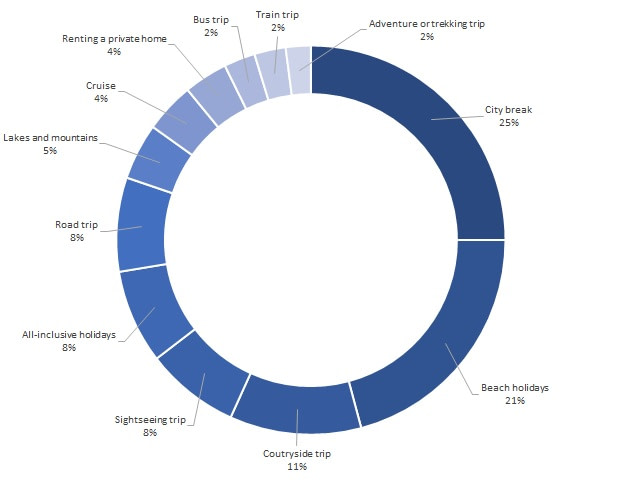
But just a heads up! Remember, it is your holiday. You are planning it for you. So do not feel pressured to include something into your trip just because everyone does it. Or because it is just cool and trendy. We just offer suggestions on what you could include in your itinerary.
Here is a list of places that you can include in your trip to make your travel planning more diverse.
- Nature – Every country has some distinctive nature. From the most amazing national parks to deserts, jungles or underwater wonders.
- National parks / reservation
- Lakes
- Mountains
- Volcanoes
- Beaches
- Nature wonders
- Caves
- Diving and snorkelling spots
- Treks/Hiking – Hiking is a great way how to explore nature around the area. If you are not a huge fan of long hikes, just research short distance walks.
- Cities – Even the tinies city or a village around the world has something to offer you. It might be an impressive architecture, museum or theatre. Maybe you discover a hidden gem. It is just up to you to discover the amazing places around the country and make your trip unforgettable.
- Architecture
- Religion places / Spiritual places
- Squares
- Muzeum
- Theatre
- Parks
- Restaurants and pubs – Your trip will never be complete if you do not taste the famous local food. Try it all.
- What is the local food, the place is famous for? Where can you get it?
- Are there any specialities?
- Are there any famous pubs or restaurants?
- Adventure – When I plan our holidays I always look for adventure staff to do in the country. Like bungee jumping in New Zealand, diving with crocodiles in Australia or volcano hiking in Tanna, Vanuatu. Adventure can spice up your trip and make it even more memorable. If you of course like those stuff 🙂
- Tours or cruises – Even though we are not fans or group tours or cruises, sometimes it is fun. Especially if you travel alone it can be a great way how to travel around, meet other travellers and learn about the place in general.
- Events – Are there any events/ cultural events/ festivals when you are in the country? Carnival in Rio, the best firework in the world in Sydney on New Year’s Eve, Nangol bungee jumping festival in Vanuatu, Samurai and Geisha events in Japan. Every country has an interesting culture and customs and it is fun to be a part of it.
- Castles / Chateaus – Especially European countries are most famous for castles and chateaus. Usually further from the cities in countrysides, it can be an interesting stop for you to get out of the city.
- Countryside / Wineries
- Amusement parks
- ZOO / Botanical gardens
- Abandon places / Hidden gems – We love to discover places that just locals know about. The hidden gems. But sometimes you can Google it. That is kind of a paradox. Can you call something a hidden gem when it has been already exposed to millions of people on the internet? 🙂
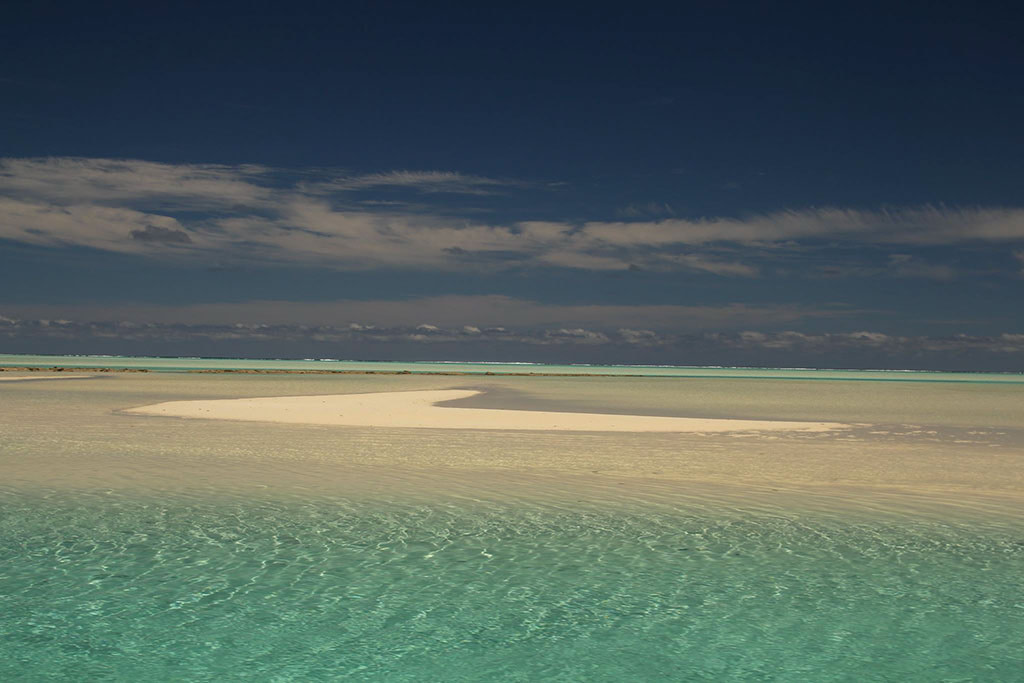
15 Tricks to find all the best places to visit when travelling
Doing a little research about the best places to visit in a particular country makes you feel more prepared for your trip. It gives you a better understanding of a place you are going to travel to.
Have you ever had that feeling “If I had known about that place before I would have definitely visited it?” But, too late, you are already at home.
We love planning and doing research about places we are about to visit. Long-time ago, we depended on travel guides because it used to be the only source of information out there. But in today’s world, you have so many travel resources, that sometimes you can feel overwhelmed by all the options you have.
Thorough research about your destination is not just about finding all the places to visit. It is also about discovering where to go, what to skip, what are well-known tourist traps, where is the highest chance to get scammed and so on.
Our 15 tricks to find all the best places to visit will help you to discover all the best places to visit. So you are never ever disappointed or lost again.
Here are our 15 TIPS for finding all the best places to visit while planning a trip:
1) UNESCO site
UNESCO World Heritage List is a great source of information about the best places to visit around the world. It contains both cultural and natural sites, that you should not miss while visiting that particular area.
2) Official website of the country
Almost every country has some sort of semi-official travel site. These websites are packed with all sorts of information about visas, local transportation, vaccination and best places to visit. Again, a great tool to start with when you have no information about the country you are visiting.
3) Google
Even it seems like the most obvious option, it needs to be mentioned. As it is still the best travel source that you will ever find. Just type in your destination and all the best places to visit will pop up. You can browse through thousands of pictures and information about the destination. It is a great way to familiarise yourself with the place you are going to visit.
4) Google maps
For those who are patient and love travel planning, Google maps can be a great source of information. Just look for the place you are going to, zoom in and see what Google maps show you on a map.
5) Youtube
We have never used Youtube as a source of information until recently. Mainly we use it to find reviews from vloggers or bloggers about certain places. Also, browse through millions of travel documents. Explore videos from National geographic. Or local guides about places you are planning to visit.
6) Travel blogs, Food blogs
We found travel blogs more reliable as a source of information than most of the forums and guidebooks. Especially blogs written by local travel bloggers are at the top of our search tools. They are a great place to learn about the best places to visit while travelling. Try to look for blogs written by local travellers. They usually contain more up-to-date information and local advice.
7) Travel guides
Travel guides are still the number one source for travel information for most travellers. The problem is that their practical information is often out of date. Sometimes it is very hard to find a really great travel guide that suits all your needs. Some travel guides even contain just paid adds.
Despite not being that reliable every time, they are still very imported as a foundation. They are great for getting basic info about the destination, an overview of the best places to visit and suggested itineraries.
8) Airbnb, Couchsurfers
When we travel, we usually use Airbnb or Couchsurfing as our accommodation. Not only it is a cheaper way, but you also get the chance to interact with locals. We always ask about their suggestions about the best places to visit, their culture and specialities. Airbnb renters or couchsurfers can very often recommend truly special places. Places that no one really knows about.
9) Information centers and locals
When you travel, ask locals. We always try to start a friendly conversation with people in shops, bars and restaurants. Don´t be afraid to ask for advice. Locals always know better, most of them will be happy to share their knowledge if you ask nicely. They can give you advice, tips and recommendation for hostels, restaurants and local markets.
10) Fellow travellers
One of the best thing about staying in a hostel is a chance to meet other travellers and backpackers. So use this opportunity to ask them, maybe they know something you don´t.
11) Bucket lists, Wish lists
Wish lists/Bucket lists of other travelers are a great source of inspiration. Depends on your interests, try to google:
Best restaurants in……?
…… bucket list
Best lakes to visit in……..?
Best sunset spots in …….?
The best things to do in ……..
Top adventures to have in …………..
Your imagination has no limits.
12) Google images
Sometimes you can find the best places to visit just through browsing through Google images. Try to google the particular country or a place and search through google images, that come up.
13) Community – Facebook groups, travel forums
Ask the community. Try to find Facebook groups and travel forums that contain travel information about the place you are about to visit. Some locals even look for a chance to meet other travellers and share their knowledge and stories.
14) Pinterest, Flickr, Instagram
We love those tools. Especially Pinterest is an amazing source of inspiration for your upcoming holidays. You can also create your own bucket lists and thanks to millions of pins you can get inspired every day. We use Instagram as a source of inspiration. Search for a specific hashtag like #Australia, #Prague, #SoutheastAsia, #Vietnam. Browse through the most recent photos that travellers posted from that location.
15) Get lost on a purpose
Sometimes best places are discovered by mistake. If you dare, lose a map and get lost. Sometimes just going without a plan, wander through small city streets will lead you to hidden gems, that just locals know about.
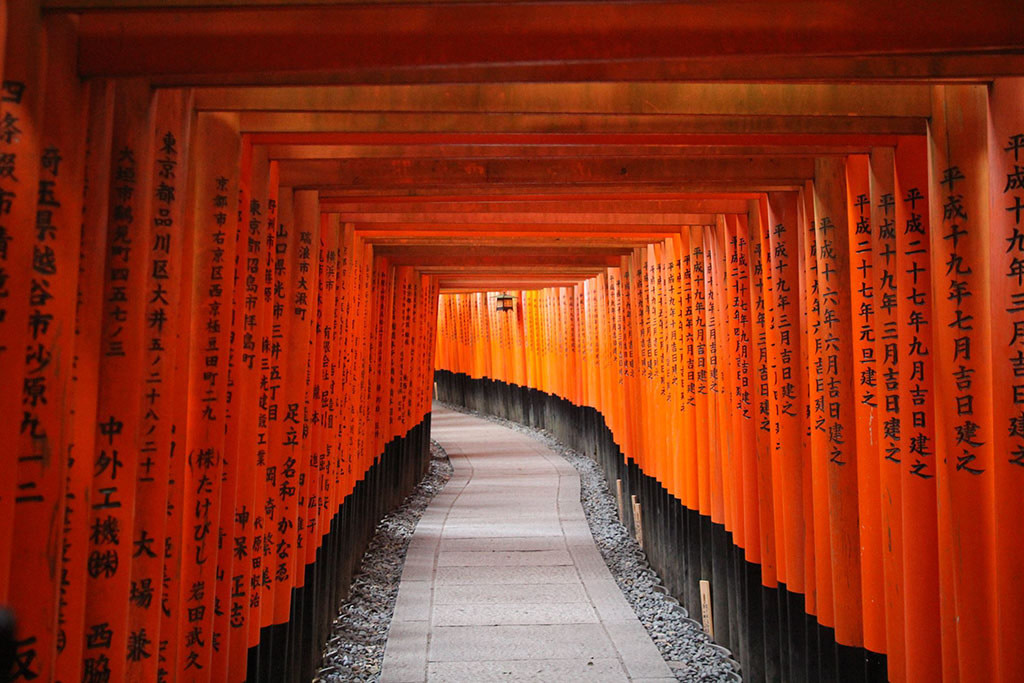
9. Transportation
Next step is to search for the best, quickest or the most affordable way how to travel into your destination. The style of transportation basically depends on your preferences and budget. We gathered all our trusted websites that we use for travel planning in our travel resources.
When we search for transportation we try not to get limited to flying. We try to search for all the possible ways how to travel into the country. Is there a chance to fly? Take a train? Boat? Or simply rent a car and drive?
Then we compare all the findings and choose the best way of transportation. Just after that, we start to search for the best deals.
Did you know, that:
- One in seven Americans fear a better deal will pop up after they’ve booked their trip
- More than half of travellers spend more time researching the best deals for their trip than where to actually go on vacation
- Just 34% of travellers look for the cheapest transport, 52% of travellers look for the fastest option
10. Accommodation
The accommodation should always serve your travel plans. Incorrectly chosen accommodation can not only ruin your travel itinerary, but also a budget.
There are several things to think about before booking accommodation:
- Location – Is it worth it to find cheap accommodation further from the centre if you have to pay extra for transportation costs? Depending on your situation sometimes it is better to pay a little bit more to stay closer to the centre, so you can save time and have a much more pleasant experience.
- Number of days – How long do you plan to stay in one place/ city? If you plan to stay a couple of days it is worth it to look for accommodation that offers some deals when you stay more than one night.
- The style of travelling – What style of accommodation are you looking for? We like to mix things up, and often look for several different types of accommodation, if that it is possible. You can be really creative when looking for accommodation, so don´t just stick to hotels. Especially if you would like to meet locals.
When we look for accommodation I always try to search for:
- Hostels, guesthouses and low budget pensions
- Hotels
- Camping
- Renting – Airbnb
- House sitting
- Couchsurfing
- Other types – farm stays, homestays…
- Unique ones – churche stays, monastery stays, treehouses…
Especially the last two types of accommodation are fun and very unique. They can´t be found in every country though.
So be creative, think outside the box and spice things up with an adventure sleepover.
11. How to travel around?
Now you are almost done with your travel planning. It is time for details.
When you finally know what places you wish to visit, how you will get in and out of the country and what accommodation you are going to sleep in, it is time to look for the ways to connect all those dots on a map. If you plan a city break, that means getting familiar with a public transportation system. If you plan a road trip, start looking for rentals and so on.
As we often travel on a budget, I like to do my research about all the possible ways how to travel around.
We look for:
- Rentals – car, campervans, scooters
- Trains
- Domestic flights
- Buses
- Boats
It really depends on your experience and how comfortable you are in your abilities. Maybe, if you plan your first trip to Asia, it would be wise to look for public transportation, rather than renting a scooter.
Unless we plan to rent a vehicle, because you must book it in front, we just do our research and wait until we are in the place. Sometimes we plan to take a bus and we learn from locals that train would be better, for whatever reasons. Or that there is a shortcut we did not know about.
So don´t feel like you have to research everything. Local transportation is one of the things that can wait until you are there.
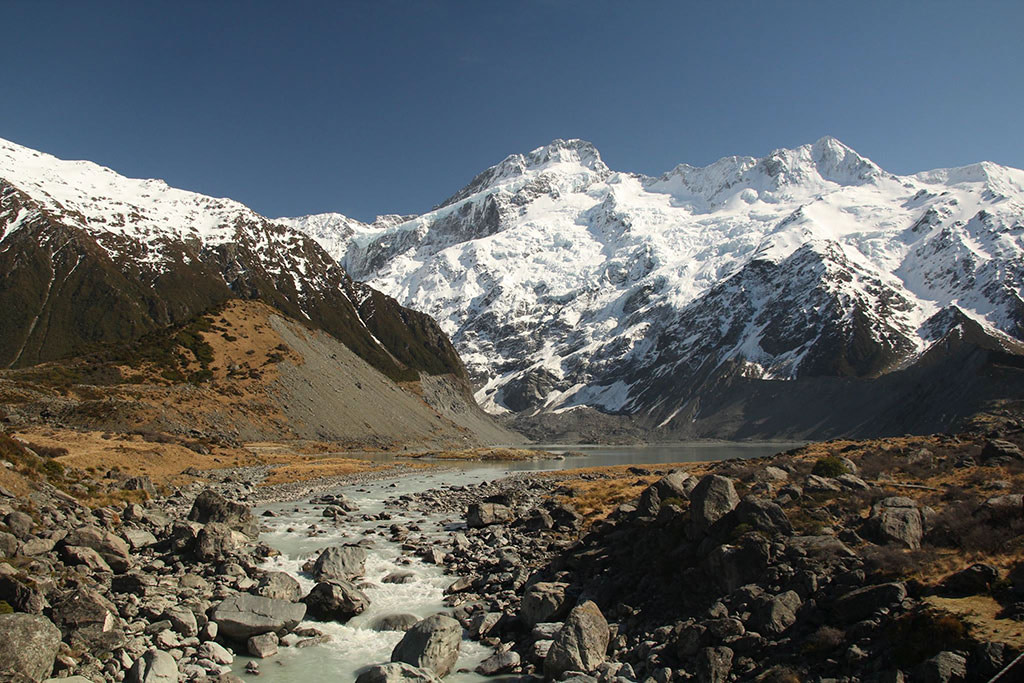
12. Creating the perfect travel itinerary
Creating a perfect travel itinerary is the last step in your travel planning process. By now, you searched for all the places you want to visit, you booked your transportation, you probably chose accommodation. Now you just have to put it together, so it makes sense.
Someone likes to use pen and paper, someone uses fancy travel apps, we like to use spreadsheets. It really doesn’t matter.
The travel itinerary simply gathers all of the information you may ever need while on your trip. It includes information about:
- Transportation like flights and buses
- Accommodation
- Booked tours
- Places you want to visit and so on
Easy steps to create the travel itinerary:
- The best thing to start is to gather all the information about your trip. That includes information about flights, accommodation, tours. Simply everything.
- We like to add all the essential information about booking numbers, hotel confirmations and rental confirmation into an itinerary, so it is easily accessible and we don’t have to look for it every time.
- Then start filling your travel itinerary day by day. We usually start with the most important places and work from there
- When you are done, think about storing your travel itinerary. A phone is a great place, but remember that the phone battery easily dies, especially when you travel. The best way is to download your itinerary into multiple devices. We also love the old school way – print it.
The golden rule – Don´t plan every minute of every day, unless that is what makes you happy 😊 When we create the itinerary, we stick to some rules:
- Highlights – every trip has highlights, that is the most important part of your trip. They are the most important places to visit. So I always divide my places of interest into two groups – musts and nice to visit. I start creating our itinerary around MUST places and add NICE TO VISIT if there is enough time.
- Time – you have to allow yourself enough time to experience things and to commute. Also, hickups happen to everyone. You have to be prepared to get delays, cancelled flights or buses and so on. If your time schedule is very, very tight you will be stressed easily.
- Synergy – Does your plan make sense? Does your plan make sense in the way you chose the transportation and accommodation and places to visit?
- Diversity – Is your plan diverse? Will you get the full experience? Do you plan to visit 5 museums? Great, but you don´t want to probably visit them all in one day. Chances are you will get bored and you will not appreciate the fifth museum.
- No plan – I love to plan to have no plan 😊 I always leave a day or more with no plan at all. Just in case we experienced some delays or horrible weather. That way we can use the extra day. Or maybe something interesting comes up. That way you have some extra time to spare.
Creating a travel itinerary can definitely be time-consuming, especially if you plan to travel for several weeks or months. But the length and depth of a travel itinerary are really up to you. You can create an itinerary as detailed as you wish. Or you can just outline the highlight points and go with the flow.
And remember your travel itinerary is just a guideline, not a legal contract you have signed. So don´t be stressed out if everything doesn’t go according to your plan.
13. Other arrangements
When your itinerary is ready and you feel more relaxed you can focus on the last details that usually don´t také too much time. Things like:
- Money exchange – what currency is used in the country? What is the best way to exchange money?
- Equipment – What special equipment do you need for your trip? Where to buy it?
- SIM cards and phone plan – Is your phone going to work at the destination? How much will it cost you to send a text? Depending on the length of your stay it is sometimes better to purchase a local SIM card.
- Electricity – What plugs are used in the destination? It is a small detail, but one that can definitely break your plans if you realize that your electric devices can´t be charged, because you forgot to check the plugs and buy a travel adapter. Here is a great site that allows you to compare all countries by plugs and voltages.
- Food and water safety – Can you safely drink tap water in the place? Is there any food you should avoid because of safety reasons?
- Cultural differences / Customs – Before every trip, we try to learn as much about the destination as possible. As part of our research, we always try to learn more about customs. Not just because some customs around the world are fascinating, but mainly because we want to avoid any embarrassing or awkward situations.
BONUS TIPS: START A TRAVEL JOURNAL!
Travel journal makes a huge difference in travel planning!
It is not a travel itinerary, it is just a notebook that holds all of your information until you are ready to create an itinerary.
When we start planning a trip we always start a new notebook. Into that notebook we write all information about the destination, contacts, places and just every small detail and information about the destination. That way we have all information together in one place so it´s easier to go through it. Also, if you look for piece of information you forget you know where to search. Also, if you are a travel blogger, it helps you to have all the info together for future posts.
Travel planning might seem intimidating at first, but when you get the proper system at work, everything falls into the right place. And if you still need a little bit of help, let us know, so we can help you.
Do you like travel planning? Do you agree with our steps? Let us know in the comment section down below. And if you like our travel planning guide please share it with your loved ones.
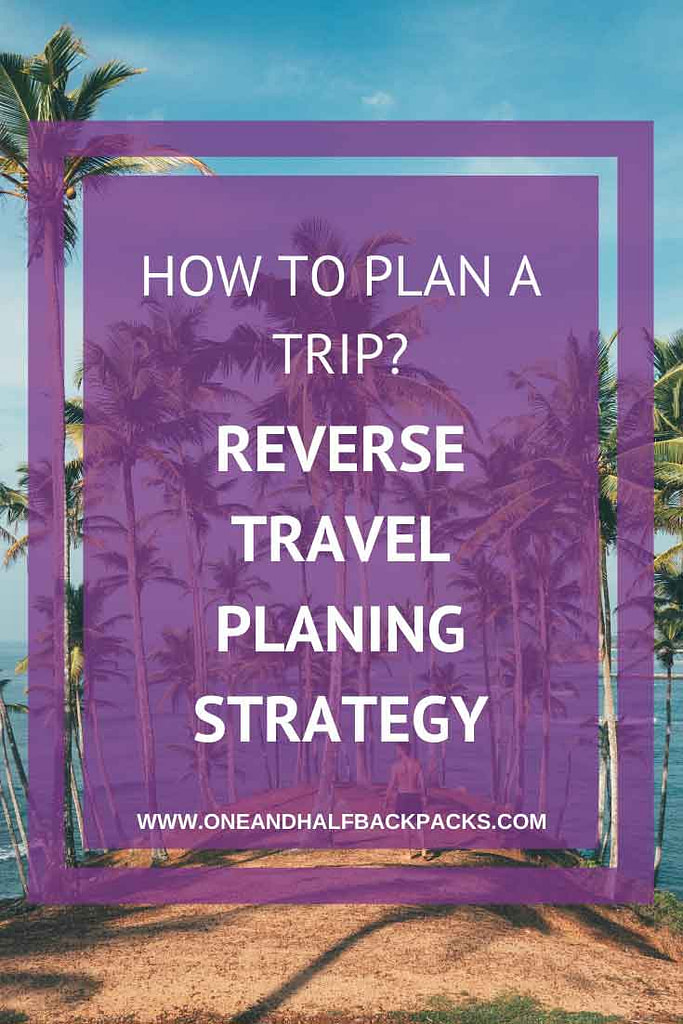

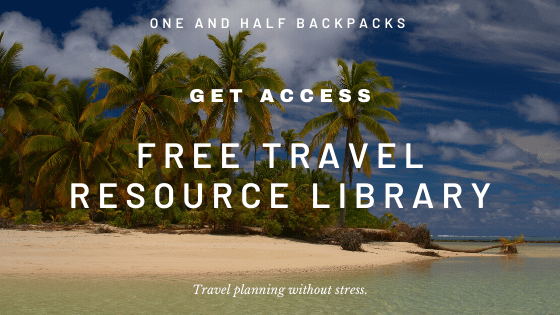
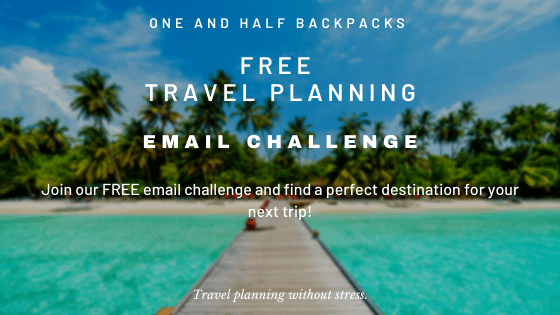
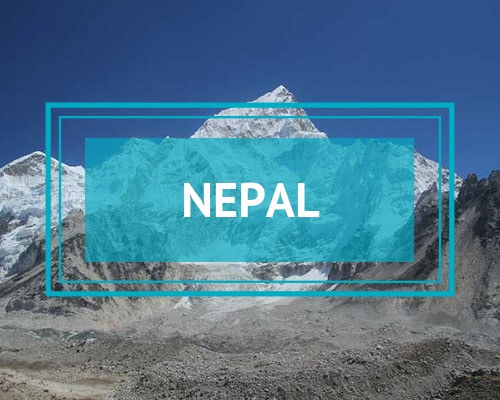


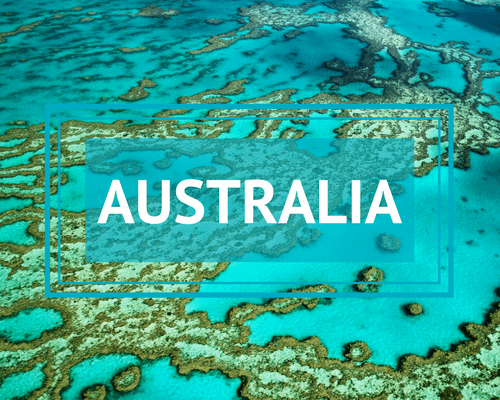

13 comments
We always have trouble deciding where to go, there are so many places we’d like to visit. Really appreciate all these suggestions for making the whole planning stage easier.
This is exactly what I do. Thanks for your suggestions and will use them for my upcoming trips.
I love to plan travel, although I wish I had unlimited resources to do so (both time and money). Lately, it’s been more stressful due to cancellations and rescheduling. I do have a notebook with all of our upcoming trips–it’s invaluable!
Whenever I took stress during travel it became worse for me. That’s why I always now keep calm. Travelling helps to release stress and your tips are really good…
That’s quite an interesting statistics about travel. I think strategy is very important to get most of where you go specially when you are planning to go abroad.
I found out that travel planing relaxes me,but it can be overwhelming sometimes. So thanks for the amaizng tips and information
Travel planning is only 25% of the journey for travel. I do a budget, buy tickets, AirBnB, and etc, but I just leave things to up to free will as I like to walk around the places I go to.
I love all these tip, especially the bonus tip. I visited many places but never actually had a travel journal, I usually just keep photos and souvenirs, writing down memories sounds like and excellent idea.
I actually love to plan my trips but I found a lot of great tips here! I read a study once that some people find more enjoyment from planning a trip than from the trip itself. Thanks for the great article!
I didn’t know so many people stress out about
Travel planning. I actually enjoy it and your tips help.
Haha even we are stuck at home still but we are planning for the next trip. Thank you for your suggestions and tips!
Travel planning stresses me out, but I love it. I like the idea of reverse travel planning. Sounds like it would better suit me and my time.
This is so true. Traveling or palnning to travel is really stressful. But it’s worth it. I will have to consider all your suggestions here. Thanks for sharing.